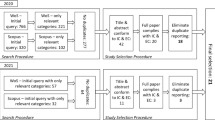Abstract
As model-driven development techniques grow in importance so do the capabilities and features of the tools that support them, especially tools that allow users to customize their modeling language. Superficially, many modeling tools seem to offer similar functionality, but under the surface there are important differences that can have an impact on tool builders and users depending on the tool architecture chosen. At present, however, there is no established conceptual framework for characterizing and comparing different tool architectures. In this paper we address this problem by first introducing a conceptual framework for capturing tool architectures, and then — using this framework — discuss the choices available to designers of tools. We then compare and contrast the main canonical architectures in use today.
Preview
Unable to display preview. Download preview PDF.
Similar content being viewed by others
References
OMG: Unified Modeling Language, v1.5. OMG document formal/03-03-01 (2003)
Gonzalez-Perez, C., Henderson-Sellers, B.: Templates and Resources in Software Development Methodologies. To appear Journal of Object Technology (May/June 2005)
Matula, M.: Netbeans Metadata Repository, http://mdr.netbeans.org/ (2003)
Greenfield, J., Short, K.L., Cook, S., Kent, S.: Software Factories: Assembling Applications with Patterns, Models, Frameworks, and Tools. Hungry Minds Inc. (2004)
Atkinson, C., Kühne, T.: Model-Driven Development: A Metamodeling Foundation. IEEE Software 20(5), 36–41 (2003)
Bézivin, J., Gerbé, O.: Towards a Precise Definition of the OMG/MDA Framework. In: Proceedings of ASE 2001, San Diego, USA (2001)
Kelly, S., Lyytinen, K., Rossi, M.: MetaEdit+: A fully configurable multi-user and multi-tool CASE and CAME environment. In: Constantopoulos, P., Vassiliou, Y., Mylopoulos, J. (eds.) CAiSE 1996. LNCS, vol. 1080, pp. 1–21. Springer, Heidelberg (1996)
Klein, T., Nickel, U.A., Niere, J., Zündorf, A.: From UML to Java And Back Again, Tech. Rep. TR-RI-00-216, University of Paderborn (1999)
Jeusfeld, M.A., et al.: ConceptBase: Managing conceptual models about information systems. In: Handbook of Information Systems, pp. 265–285. Springer, Heidelberg (1998)
Mylopoulos, J., Borgida, A., Jarke, M., Koubarakis, M.: Telos: representing knowledge about information systems. ACM Trans. on Information Systems 8(4) (1990)
Author information
Authors and Affiliations
Editor information
Editors and Affiliations
Rights and permissions
Copyright information
© 2005 Springer-Verlag Berlin Heidelberg
About this paper
Cite this paper
Atkinson, C., Kühne, T. (2005). Concepts for Comparing Modeling Tool Architectures. In: Briand, L., Williams, C. (eds) Model Driven Engineering Languages and Systems. MODELS 2005. Lecture Notes in Computer Science, vol 3713. Springer, Berlin, Heidelberg. https://doi.org/10.1007/11557432_30
Download citation
DOI: https://doi.org/10.1007/11557432_30
Publisher Name: Springer, Berlin, Heidelberg
Print ISBN: 978-3-540-29010-0
Online ISBN: 978-3-540-32057-9
eBook Packages: Computer ScienceComputer Science (R0)




